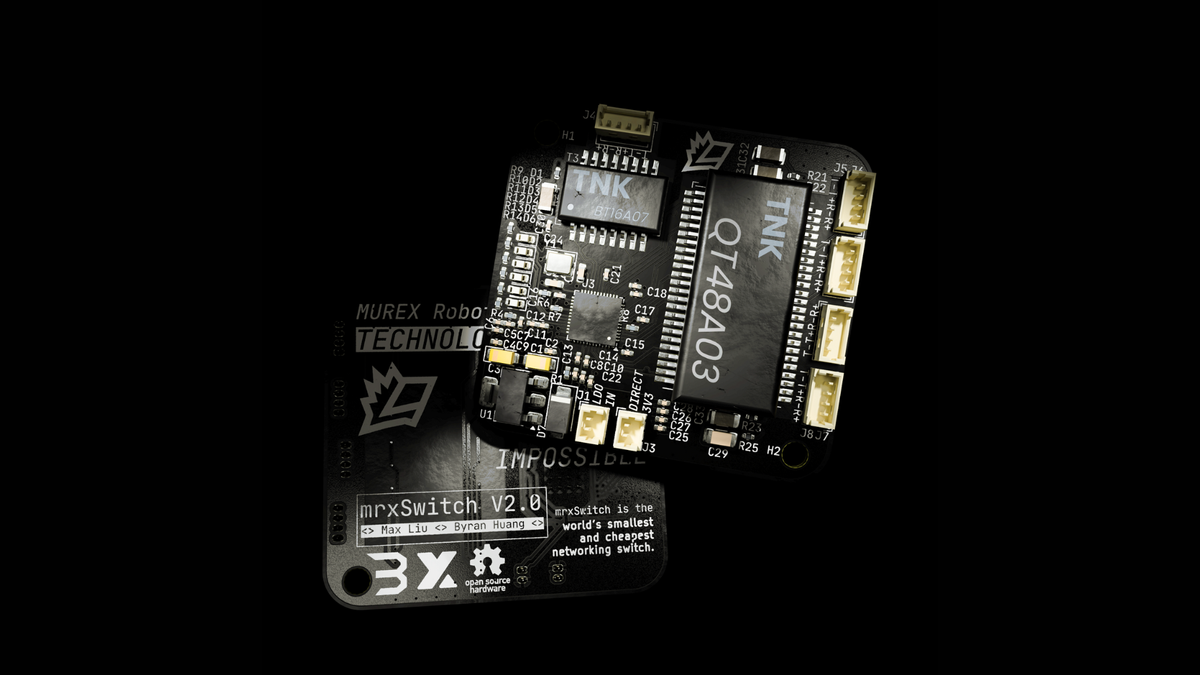Designed for use in a remotely piloted underwater rover, the mrxSwitch v2.0 supplies five 100 Mbps Ethernet ports at a footprint of only 44.9mm by 42.2mm. Network switches of this form factor are typically reserved for highly embedded systems; the team prioritizes its use in remote-operated underwater vehicles (ROVs) or autonomous underwater vehicles (AUVs), but IoT devices and other consumer devices with space constraints may have use for network switches this small. The mrxSwitch v2.0 represents a 30% size reduction over its predecessor, along with a BOM cost reduction of 15%, even with its smart-looking custom PCB.
Most solutions for network switches of this form factor are priced at a premium due to the narrowness of the use case, with MATE-sponsored options running from $75 to $175 – hence the decision to engineer an original solution. The mrxSwitch v2.0 stands at a current BOM price of $7. While you might not see it used in our best network switches (at least not yet), the build is a serious triumph for the young team.



This is awesome, and done by some really talented kids who are clearly smart motivated and willing to put in the work to get this project out the door.
Now imagine if the resources to do this kind of work as well as the background education and things like food security and economic stability were given to kids outside of an exclusive private boarding school? We’d empower some of the most imaginative of us to accomplish so many more amazing things.
Then the poors will rise up, can’t have that. /s
I thought having government funded research was the purpose of NASA and that was then open sourced.
That was before the right made up “public/private partnerships” to hide government handouts to Boeing, defense contractors, drug companies, and Monsanto (or whatever their new name is).